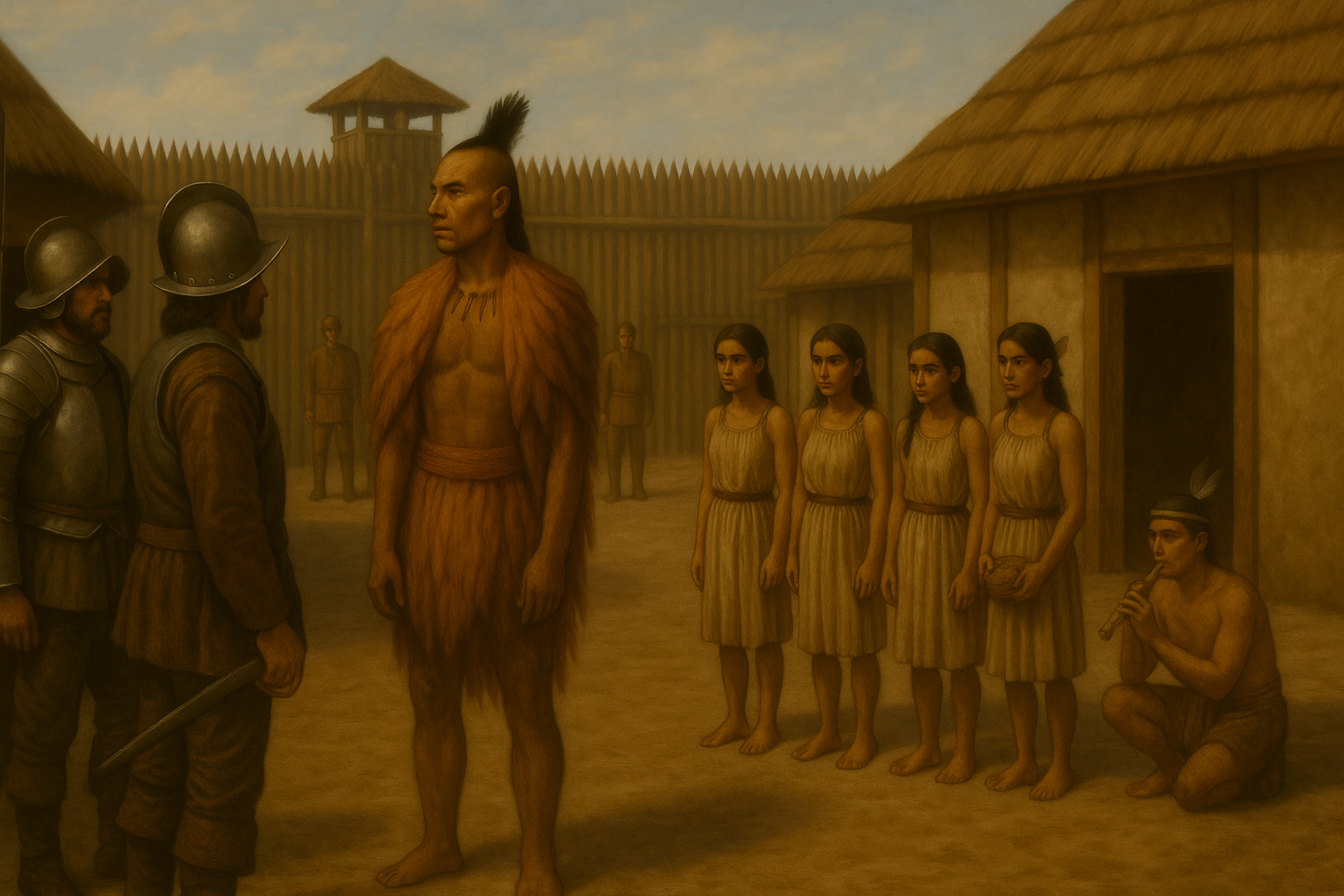
Lazyguys Presents
The Hunt:
Challenge Series
Road to Chicaza: Challenge #13
2 Points
1 Guess Limit
“Mabila's Veiled Welcome”
De Soto Expedition, Arrival at Mabila - October 18, 1540
The eighteenth of October dawned cool, the scent of pine heavy in the air. By mid-morning, Tuskaloosa’s promised town, Mabila, came into view. It was not large, but stoutly built, encircled by a high palisade of thick timbers, plastered and interwoven with branches. The ground before the main gate lay scraped bare to the walls, a feature that troubled some of our more seasoned soldiers.
As the vanguard, with the Adelantado (our Captain-General, Hernando De Soto) and Tuskaloosa at its fore, approached, a curious welcome began. Flutes sounded from within, accompanied by rhythmic chanting, and soon a procession of women emerged, moving in a slow, formalized dance. Their movements were unlike any native displays we had witnessed in La Florida, more measured and deliberate, and the chanting held a strange, almost hypnotic cadence that resonated with an unnerving solemnity despite its outward show of greeting. They offered us meager provisions – some maize cakes and beans – yet their eyes, when they met ours, were often downcast or held a shuttered look that stirred unease.
I was among the men who followed the Captain-General into the town. The gates opened onto a small plaza, the houses built close, their walls thick. A chilling observation struck many of us at once: there were no children to be seen. In every other settlement, they had been an ever-present, curious throng. Here, none. And while women danced, few Mabilian men were visible in the open, though glimpses through chinks in the house walls revealed them packed within, heavily armed with bows and clubs. Indeed, for every one dancer in the plaza, it seemed at least four dark shapes with weapons could be discerned lurking in the shadowed doorways of the nearest dwellings alone. The air, thick with woodsmoke, vibrated with a tension that the dancers’ forced ceremony could not conceal.
The Adelantado, ever resolute, dismounted. Tuskaloosa, with a gesture, indicated to our Captain-General that he wished to speak with his principal chiefs who, he said, awaited him in one of the larger dwellings. He would rejoin us promptly, he assured. The Adelantado, perhaps impatient to establish his quarters, gave a curt nod.
Tuskaloosa entered the house without a backward glance. The minutes stretched. The dancers’ music and songs grew fainter, then ceased. A heavy, expectant silence descended upon the plaza, different from any forest quiet we had known; this was a silence that held its breath. I saw hands instinctively move to sword hilts, to the stocks of harquebuses. The Captain-General’s brow furrowed as he sent Gonzalo Silvestre—a captain of horse from Extremadura, a man seasoned by hard campaigns and known more for his quick sword than his patient counsel—to bid Tuskaloosa make good on his promise and return.
To Be Continued…
Based on the narrative and the number of dancers in the image, how many dark shapes with weapons could be seen lurking in the shadows?


